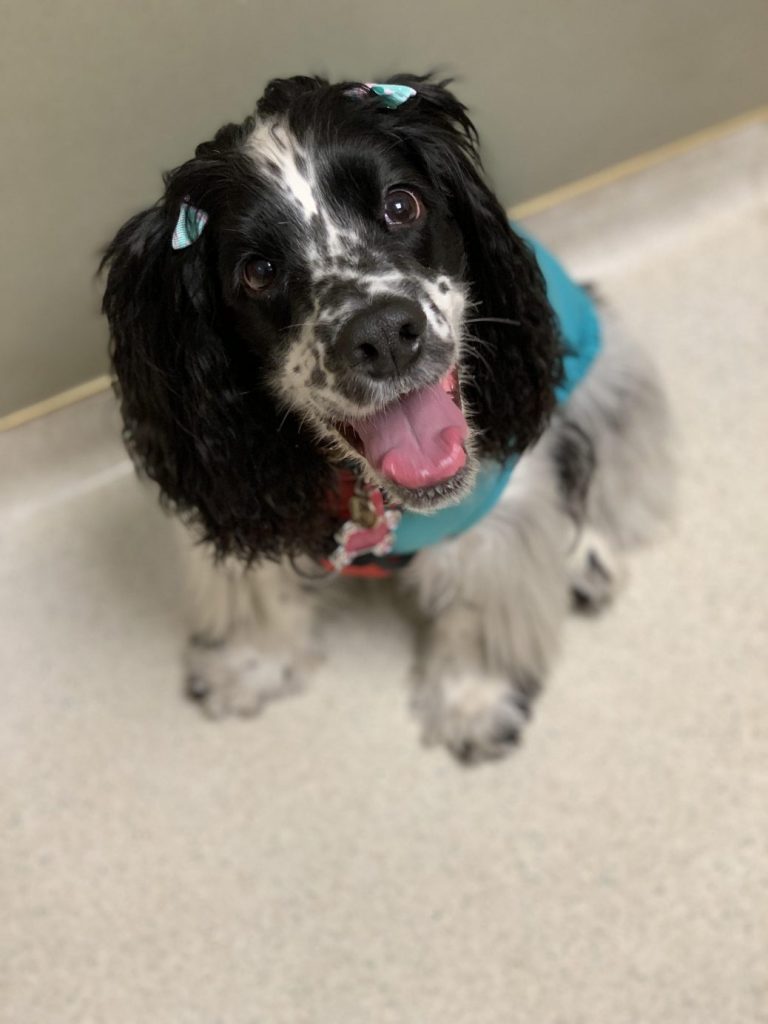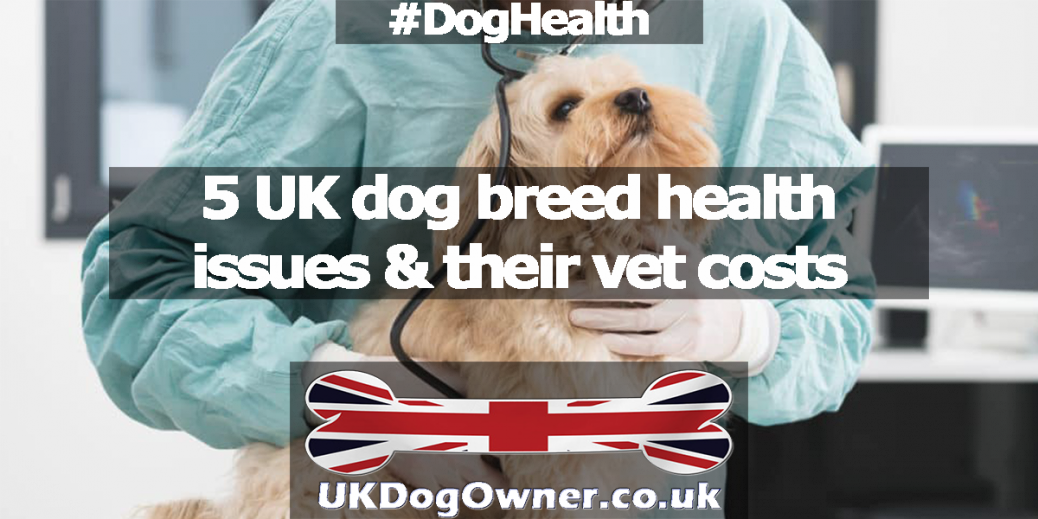Whether your a new or existing dog owner in the UK, it can be daunting trying to budget for all of the costs involved.
These costs are particularly hard when it comes to our loved pet’s vet fees.
Much like when it comes to hiring home improvements or getting your car fixed, knowing an average cost to aim for can be helpful for shopping around.
Whether you have pet insurance or not, vet fees can skyrocket and recur. Knowing how your vet’s prices compare to the national average can be useful especially when shopping around.
Like anything else though, cheaper is not always best. Picking the right treatment for our dogs is a fine balance between cost and necessity.
All of our research below is the combination of data direct from UK veterinarians and UK dog owners. The data spans 50,000 dog related health costs from 2019 adjusted for inflation for 2020.
Labrador Retriever

Starting our list with the number one owned dog in the UK is the labrador retriever.
Labradors are renowned to be friendly, playful and an energetic presence in the home. Labrador retrievers are also great with kids and always eager to learn as they boast one of the higher intelligence when it comes to dogs.
Unfortunately all this energy and playfulness can come at a cost. Labrador retriever’s aren’t immune to hereditary health issues and their active lifestyle doesn’t do much to help their cause.
| Common health issue | Risk | Average UK vet treatment cost |
| Hip dysplasia | High | £5175.25 |
| Ear infection | High | £235.82 |
| Growths & tumours | Medium | £201.20 |
As you can see from the vet pricing table above, Labrador’s are most prone to 3 main health issues.
Hip Dysplasia is probably the largest concern for the breed. This condition is largely hereditary with many canine experts pointing to over-breeding as a large factor of the condition.
Within the UK, hip dysplasia can see a vet bill of around £5000 per hip. This figure would include surgery and aftercare but it is a significant outlay for any UK owner.
Ear Infections and growths/tumours are also prominent for the Labrador retriever breed. Much like other dog breeds these are common place simply due to the genetics of dogs in general.
German Shepherd

Next on the list is another very popular dog in the UK, the German Shepherd.
Sometimes known as an Alsatian, the German shepherd is much like the labrador retriever when it comes to breed traits. Energetic, playful and good with kids are all fundamental charactiaristics of the breed and their intelligence rivals that of the labrador.
Considering the similarities German shepherd’s share with Labrador retrievers, it’s no shock to see the common health problems creep into both breeds.
| Common health issue | Risk | Average UK vet treatment cost |
| Hip dysplasia | High | £4838.90 |
| Epilepsy | Medium | £205.71 |
| Growths & tumours | Medium | £175.20 |
Hip dysplasia is again a high concern much like for Labrador’s above. The condition can be particularly painful for German shepherds with many dogs struggling to understand the implications.
Due to their playful and energetic nature, many German Shepherds find it hard to cope with the reduced mobility when suffering from the condition. This can lead to depression and obesity along with a whole list of other factors stemming from the condition.
Epilepsy is also a concern for German shepherds. This condition is a brain disorder that can cause traumatic seizures for the dog. Luckily treatment is relatively straightforward with drugs available in the UK to help stop all seizures in most cases.
Cocker Spaniel

Traditionally bred as gun dogs, the Cocker Spaniel is another popular UK dog that boasts tons of energy.
Friendly and playful by nature, the breed can be seen with a wagging tail ready for instructions at any time of the day.
Unlike Labradors and German shepherds though, the cocker spaniel suffers from a vastly different list of health issues.
| Common health issue | Risk | Average UK vet treatment cost |
| Skin infections | High | £312.80 |
| Allergies | Medium | £325.02 |
| Entropion (dry eyes) | Medium | £276.30 |
Skin infections for Cocker Spaniel’s is the most frequently seen health issue for UK dog owners. Symptoms can include excessive scratching and irritation for the dog. This can lead UK dog owners to conclude fleas as being the cause but closer inspection of the areas will show rashes and scabbing.
Entropion (dry eyes) and allergies are also commonly seen in the breed throughout the UK. Whilst these can also be of a major concern, drugs are available through most vets that can see both conditions almost eliminated.
Much like any health condition we experience as humans, all of these ailments can be reoccurring so it is important to keep an eye on your dog’s symptoms so that early treatment can alleviate the condition before it even gets going.
French Bulldog

French bulldogs are simply adorable. It’s no surprise then that they rank very highly on the most popular dogs in the UK.
Frenchies, as they are sometimes referred as, have a distinctive squashed face which is known in the medical World as brachycephalic.
Whilst their squashed face is a big factor in their cuteness, it is also unfortunately a big factor when it comes to their health.
French bulldogs much like Pugs suffer mainly from the following:
| Common health issue | Risk | Average UK vet treatment cost |
| Spinal issues | High | £2504.44 |
| Skin infections | High | £305.29 |
| Entropion (dry eyes) | High | £296.60 |
Spinal issues is unfortunately ever prevalent within the bulldog breed. It is believed that this is due to the way the animals have been bred over the years causing deformities within the spine.
As with humans, spinal issues can be extremely dangerous. If untreated they can lead to permanent paralysis of the back legs that is irreversible.
The two other top health issues affecting Frenchies are also heavily related to the breeding practices over the years.
Skin infections can be tough to manage for the breed and noticing the issue as early as possible can be key to alleviating discomfort for your pet. French bulldogs tend to be very distinct in their individual character so most UK dog owners can spot the strange behaviours relating to skin infections.
Dry eyes can also be a large negative effect on a French Bulldog’s quality of life. The eye lids become itchy and irritable causing partial and sometimes total losss of vision in the dog if left untreated.
Luckily skin irritations and dry eyes can both be treated with medication. As always, catching the health condition early is key.
Staffordshire Bull Terrier

Staffies, as they are sometimes referred to by UK owners, are a strong charismatic breed from the bull terrier family tree.
This breed has seen a sharp increase in ownership across the UK in the last 10 years. This increase is mainly due to their distinct look, very strong body type and their protective nature towards their humans.
Whilst the athleticism of the breed and the smaller size would on the surface mean less health issues, staffies aren’t immune from the most common of health problems.
| Common health issue | Risk | Average UK vet treatment cost |
| Hip dysplasia | High | £4870.33 |
| Skin infections | High | £305.29 |
| Growths & tumours | Medium | £299.12 |
Hip dysplasia is unfortunately a key concern in Staffordshire bull terriers. As with Labradors and German Shepherds, staffies are particularly athletic and energetic. This energy comes at a cost and hip dysplasia can be that cost.
Skin infections are also a key concern for the breed. UK dog owners report that yearly flare ups of skin infections can be common place for their puppy. Rashes and scabs on skin are common signs of a present infection.
Conclusion
Whatever the breed, it is important that UK dog owners pay close attention to their pets and their pet’s habits. Diagnosis and treatment of any health issue can be important to catch early.
It is unfortunate that our pets can’t talk to us and let us know when they are sick but an attentive owner will spot when something is amiss.
As always we would advise speaking with a UK veterinarian if you have any concerns or if your dog is showing strange behavioural traits.
We hope with this list of average prices it will give new UK dog owners an insight into breed health costs and existing UK dog owners a heads up should their dog fall ill.














